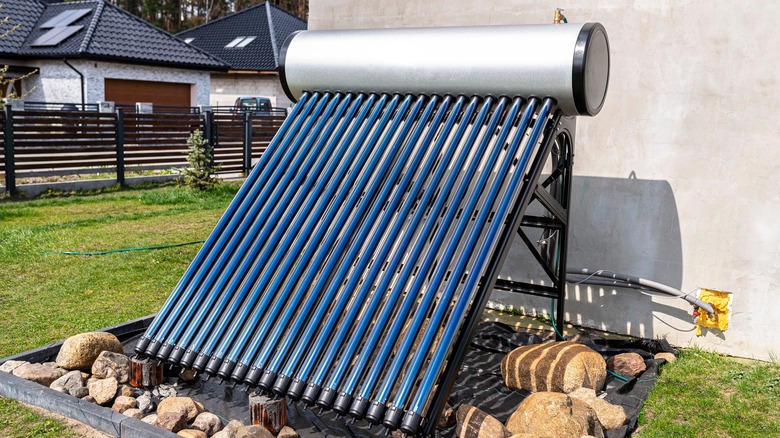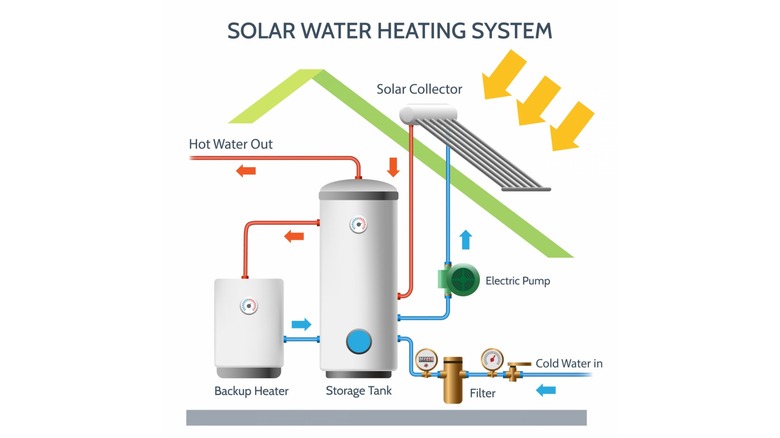Home Solar Water Heaters: How Much Money Can They Save You?
Solar energy has been around for a long time now, which means it's become much more accessible to normal homeowners. With solar panels or collectors installed on your roof, you can take advantage of the natural energy source that fuels and sustains our entire planet — the sun — to heat your water. Its energy is free, it's available (to some extent) every day, and it's not scheduled to go anywhere for at least a few billion years. As well as monetary savings, you can also benefit from freedom and independence — no one can increase the price per kilowatt, and no matter what crazy energy crisis pops up, your water will stay hot.
Of course, installing a solar water heater is still an initial barrier, with costs varying significantly depending on what kind of system you choose and who installs it. Some estimates range from $3,000 to $5,000, but if you have a large house in an expensive area, some people have reported paying almost $10,000. The effect of these numbers on your solar dreams completely depends on your financial situation and your determination to get those panels in place. Nonetheless, one thing everyone should look into is the monthly savings you could achieve and the time it might take for those savings to pay for the installation.
How does a solar water heater work?
There are two main types of solar heating systems: active and passive. Active systems are more complex, using pumps, temperature sensors, electronics controls, and heat exchangers. They're best for warm climates where there's very little chance that the water will freeze during the night.
Passive systems are a lot simpler and combine the storage tank and the solar collector into one component. They are a little more suited to colder climates, and if you live in a cold area where water can freeze frequently during the winter, there's a special type of system to deal with this. The different systems cost different amounts of money — but the professionals will find out what type you need, so you don't need to worry about gaining a detailed understanding of the different systems.
The important part of each system is the same — the energy used to heat the water is collected by solar panels from the sun. The most important thing to understand about most solar setups is that they're designed to be used during the day. While some systems store energy in a solar battery and use it at night, this isn't always worthwhile. Instead, many systems have a backup water heater (basically the normal gas or electric one you use now) to draw at night. To make the most out of your solar water heater, you should use your washing machine, dishwasher, and shower primarily during the day.
How much money can you save with a solar water heater?
The specific amount of money you'll save depends on how much you pay right now, of course, but in terms of percentages, there are lots of estimates from reputable sources to consider. Energy Star estimates that solar water heaters can cut your heating bill in half, while Energy.Gov believes you should see a 50%-80% drop. If you're buying a new place, you can incorporate a new solar water heater into your mortgage — your monthly payments would only go up by around $20. As for the installation costs, it won't cover everything by any means, but you can cash in your reward for helping the planet in the form of a federal tax credit. This can bring down the costs a little bit — the example given on the Energy.Gov website calculates a $5,100 tax credit for a solar system that costs $18,000.
Another thing to note is that solar water heaters are about saving money, not making money. You might have heard stories in the past about people generating more energy than they need and selling the excess to the grid for profit. However, this is an old concept that doesn't hold up any more, so it's best to focus on savings rather than profit.


